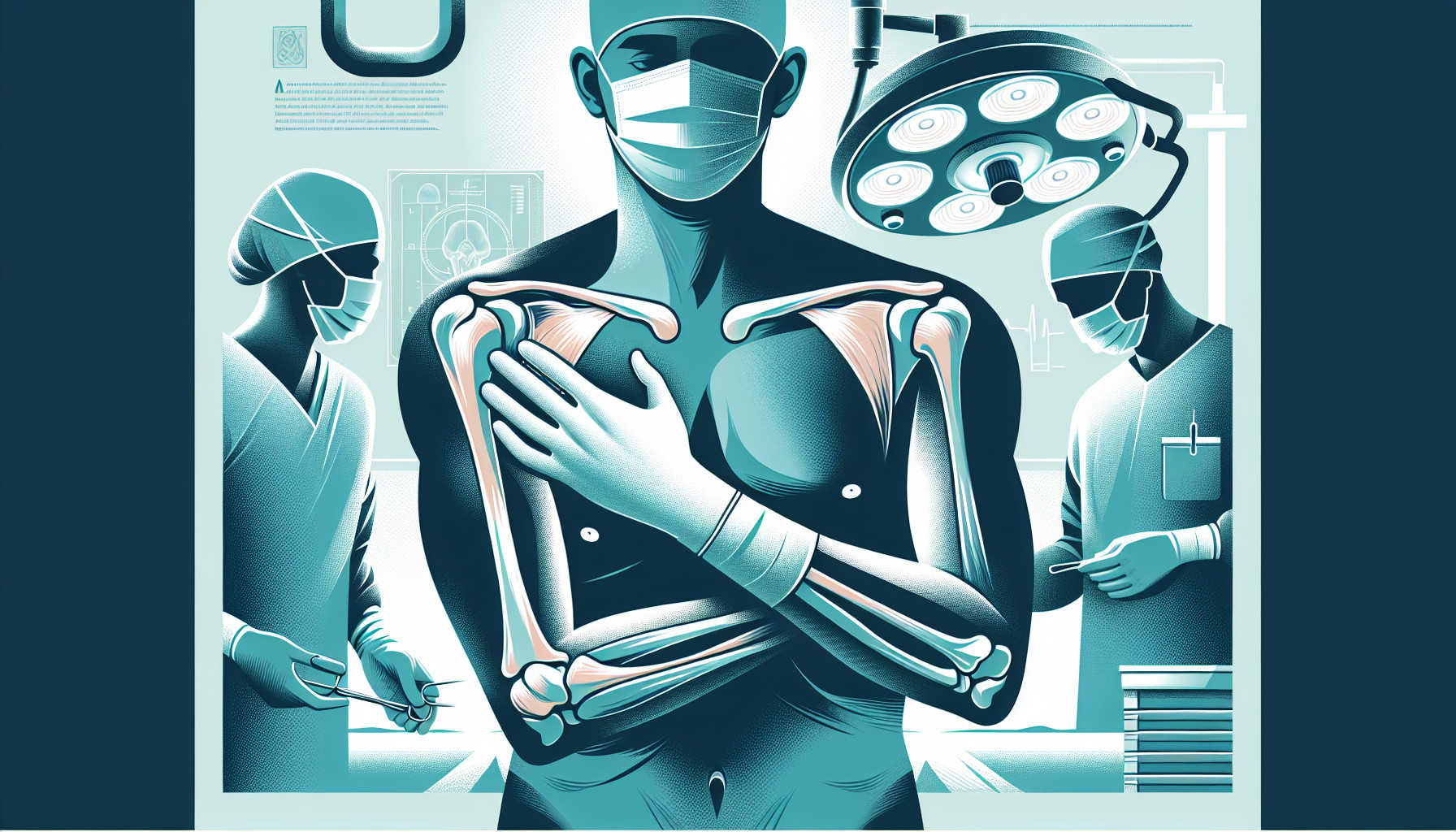Our Summary
This study examined the link between a specific type of infection that can occur after shoulder replacement surgery (known as periprosthetic joint infections or PJIs) and mortality rates. The researchers looked at 411 patients who had revision shoulder surgery between 2007 and 2020, categorizing each case based on the likelihood of PJI. The data showed that those who had a confirmed or probable PJI (the “septic” group) had a significantly higher death rate than those with a possible or unlikely PJI (the “aseptic” group). This difference was particularly noticeable two and five years after surgery. The study also found that a specific low-virulence organism, Cutibacterium acnes, was connected to a lower mortality rate compared to other organisms causing PJI. The researchers concluded that the risk of this infection not only has serious implications for a patient’s shoulder function but also increases the risk of death. Therefore, efforts should be made to reduce the rate of these infections following shoulder replacement surgery.
FAQs
- What is a periprosthetic joint infection (PJI)?
- What is the link between PJIs and mortality rates after shoulder replacement surgery?
- How can the rate of PJIs be reduced following shoulder replacement surgery?
Doctor’s Tip
A helpful tip a doctor might tell a patient about shoulder replacement is to follow post-operative care instructions carefully to reduce the risk of infection. This includes keeping the surgical site clean and dry, taking prescribed antibiotics as directed, and attending all follow-up appointments with your healthcare provider. It is also important to report any signs of infection, such as increased pain, swelling, redness, or drainage from the incision, to your doctor promptly. By taking these precautions, you can help ensure a successful recovery and minimize the risk of complications.
Suitable For
Patients who are typically recommended for shoulder replacement surgery are those who have severe shoulder pain and stiffness that does not improve with conservative treatments such as physical therapy, medications, or injections. Common conditions that may warrant shoulder replacement surgery include osteoarthritis, rheumatoid arthritis, post-traumatic arthritis, rotator cuff tears, and avascular necrosis.
It is important to note that shoulder replacement surgery is a major procedure and is typically recommended only after other treatment options have been exhausted. Additionally, patients who are in good overall health and do not have any underlying medical conditions that may increase the risk of complications are considered good candidates for shoulder replacement surgery.
Timeline
Before Shoulder Replacement:
- Patient experiences chronic shoulder pain, limited range of motion, and difficulty performing daily activities
- Patient undergoes various non-surgical treatments such as physical therapy, medications, and injections to manage symptoms
- Orthopedic surgeon recommends shoulder replacement surgery as a last resort option
After Shoulder Replacement:
- Patient undergoes pre-operative evaluations and tests to ensure they are a suitable candidate for surgery
- Shoulder replacement surgery is performed, involving the removal of damaged parts of the shoulder joint and replacing them with artificial components
- Patient undergoes post-operative rehabilitation and physical therapy to regain strength, range of motion, and function in the shoulder
- Patient may experience temporary pain, swelling, and stiffness following surgery
- Over time, patient gradually improves and experiences reduced pain, improved function, and increased mobility in the shoulder
Overall, the timeline for a patient before and after shoulder replacement surgery involves a period of chronic pain and limited function before surgery, followed by a period of recovery and rehabilitation to regain function and improve quality of life after surgery.
What to Ask Your Doctor
Some questions a patient should ask their doctor about shoulder replacement surgery include:
- What are the potential risks and complications associated with shoulder replacement surgery, including the risk of periprosthetic joint infections?
- How can I reduce my risk of developing a periprosthetic joint infection after surgery?
- What symptoms should I watch out for that may indicate a PJI, and when should I contact my doctor if I suspect an infection?
- How will my shoulder function be affected if I develop a PJI, and what are the potential long-term consequences?
- Are there any specific precautions or steps I should take to prevent infections before and after surgery?
- What is the likelihood of developing a PJI based on my individual health and medical history?
- Are there any specific measures or protocols in place at the surgical facility to reduce the risk of infections during and after surgery?
- How will my recovery and rehabilitation process be affected if I develop a PJI, and what additional treatments may be necessary?
- Are there any alternative treatment options or strategies that may help reduce the risk of infections following shoulder replacement surgery?
- What steps can I take to optimize my overall health and immune system before and after surgery to minimize the risk of complications, including PJIs?
Reference
Authors: Chen RE, Vaughan AK, Cox RM, Alfonsi S, Belden KA, Namdari S. Journal: J Shoulder Elbow Surg. 2023 Jun;32(6S):S1-S7. doi: 10.1016/j.jse.2023.02.004. Epub 2023 Feb 18. PMID: 36806820
